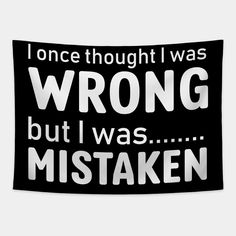A thought by Gary Chapman, from his book, When Sorry Isn't Enough (p. 34). Moody Publishers. Kindle Edition. (Click on the book title to go to Amazon to buy the book.)
And it can be, can't it?
Gary continues, "Often our reluctance to admit wrongdoing is tied to our sense of self-worth. To admit that we are wrong is perceived as weakness. We may reason, Only losers confess. Intelligent people try to show that their actions were justified."
Gary says, "The seeds of this self-justifying tendency are often planted in childhood. When a child is excessively punished, condemned, or shamed for minor offenses, the sense of self-worth is diminished. Subconsciously, the child makes the emotional link between wrong behavior and low self-worth. Thus, to admit wrong is to be 'bad.' The child who grows up with this emotional pattern will have difficulty admitting wrongdoing as an adult because to do so strikes at his or her self-esteem.
"The good news is that as adults we can understand these negative emotional patterns and yet not be imprisoned by them. The reality is that all of us are sinners; there are no perfect adults. Mature adults learn how to break the harmful patterns of childhood and accept responsibility for their own failures. The immature adult is forever rationalizing his own bad behavior."
He goes on, "Such rationalization often takes the form of blaming others. We may admit that what we did or said was not the best, but our behavior was provoked by the other person’s irresponsible actions. Thus, we blame others and find it difficult to admit, 'I was wrong.' Such blaming is also a sign of immaturity. Children by nature blame others for their negative behavior. I remember a time when my six-year-old son, confronted with knocking a glass off the table that now lay shattered on the floor, explained, 'It did it by itself.' To this day, my wife and I will jokingly say to each other when confronted with an irresponsible action, 'It did it by itself.' We both know that we are joking, but it feels so good to place the blame on 'it' rather than 'me.' "
He then says, "Mature adults learn to accept responsibility for their behavior, whereas immature adults continue with childish fantasies and tend to blame others for their mistakes."
It doesn't have to be that way. Let's learn to accept responsibility. That will go a long way in our relationships. Yes, yes! #continuethought

Comments
Post a Comment